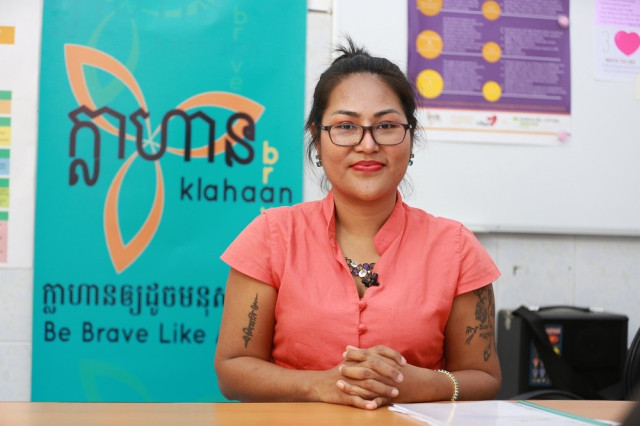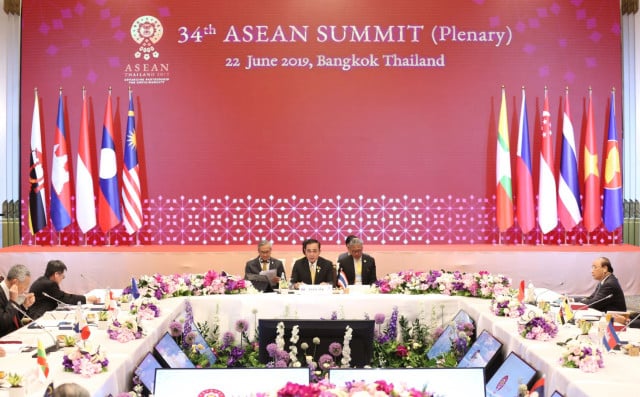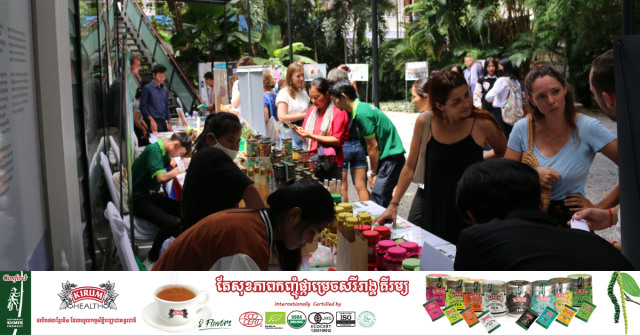Sex Workers Deserve Legal Protection

- By Lay Sopheavotey
- June 21, 2023 9:32 AM
PHNOM PENH – The Cambodian government should create legal policies to protect sex workers rather than further burden them, said Bunn Rachana, the executive director of Klahaan, an organization that defends women’s rights.
While authorities often crack down on sex workers, with police officers misinterpreting the law, these practices equate those who choose to be sex workers with those who are forced to become sex workers, Rachana added.
This confusion feeds hundreds of posts on social media, where images of sex workers are published along with captions and comments using inappropriate and discriminatory language.
On June 15, district authorities arrested more than 30 sex workers who were stationed along Veng Sreng boulevard, in Phnom Penh’s Stung Meanchey district, and the public’s reaction was no exception.
Rachana urges the government and policymakers to conduct research and draft new legislation to safeguard sex workers, as they have the right to work legally and on a voluntary basis.
“Individuals have the right to make decisions and conduct their own business voluntarily,” said the executive director of Klahaan, which means “brave” in Khmer.
Article 36 of the Cambodian constitution stated that “Khmer citizens of either sex shall enjoy the right to choose any employment according to their ability and to the needs of the society,” she pointed out.
Chhort Bunthang, research officer for communication, culture, education, and tourism, at the Royal Academy of Cambodia, said that there are two types of sex work.
While he stressed that it is illegal to run a brothel where the employer gets a commission from the employee, he reckoned that, in the context of voluntary sex workers, Cambodian law is particularly imprecise.
The Law on Tackling Human Trafficking and Sexual Exploitation applies only to those who engage in trafficking, solicitation, exploitation, and pimping, with no mention of people who would voluntarily become sex workers.
Contacted, the Ministry of Women’s Affairs’ Spokesman Phon Puth Borey only said that the initiation of a new law would have to be in line with the Cambodian Constitution.
He recalled that article 46 of the Constitution states that “the commerce of human beings, exploitation by prostitution and obscenity which affect the reputation of women shall be prohibited.”
He added that to allow sex work, it would be necessary to take into consideration all the social aspects such a law could have on Cambodian society.
While Chhort Bunthang agrees with the ministry’s spokesman, saying that legalizing sex work would go against Khmer traditions, he stresses that legislation is sometimes the only way to control a social issue, even though it goes again traditional beliefs.
He went on to cite the example of entertainment clubs and casinos. Even though Cambodians did not support them in the past, they have gained in popularity over the years, and only the law could put some kind of control on their development.
He and Bunn Rachana from Klahaan both support the drafting of a law to protect voluntary sex workers. They raise the case of other Asian countries, such as Thailand or Japan, that have made legal voluntary sex work.
“If we can’t stop them [sex workers], it should be controlled. I think management is good. Once there is a law to manage, we will know how many people are in this business, and we can support and monitor their health,” said Chhort Bunthang.
He added that when the law is in place, appropriate facilities can be set up to maintain order, and the government can also collect taxes.
Bun Rachana said allowing legal sex work can also help reduce sexual harassment and protect voluntary sex workers.
Originally written in Khmer for ThmeyThmey, this story was translated by Te Chhaysinh for Cambodianess.















